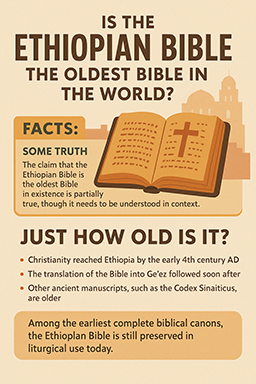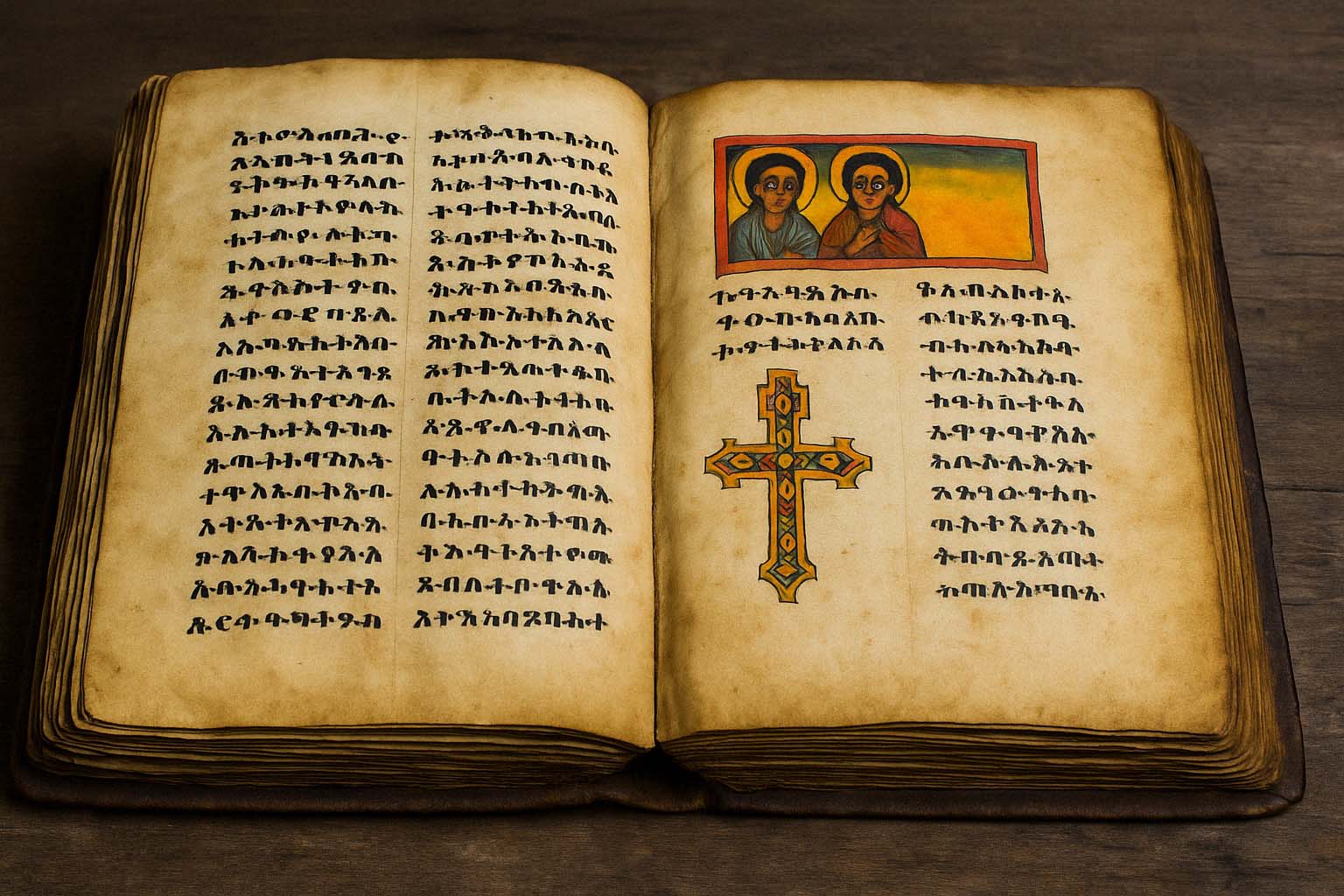Article
Search Articles
Listen
Download Article Study Sheet
Grab the study sheet to review the highlights of this article.
Download SummaryRelated Articles
Get The Infographic
Get the full sized infopgraphic overview highlighting the key points discussed in this article.
Download Now
Is The Ethiopian Bible the Oldest Bible in The World?
 Loading author...
Loading author...

Facts: Some Truth
The claim that the Ethiopian Bible is the oldest Bible in existence is partially true, though it needs to be understood in context. What makes the Ethiopian Bible unique is not necessarily its age alone, but its combination of antiquity, completeness, and distinctiveness.
Just How Old Is It?
Historically, Christianity reached Ethiopia by the early 4th century AD, around the same time the Roman Empire began to embrace the faith. The Ethiopian translation of the Bible is believed to have been done shortly afterward, making it one of the earliest complete Bibles still in use.
However, from a manuscript perspective, other ancient biblical texts like the Codex
Sinaiticus and Codex Vaticanus—both written in Greek and dating to the 4th century—are
older or equally ancient. Even earlier still are the Dead Sea Scrolls, which include
biblical writings from as far back as the 3rd century BC, though they are fragmentary
and in Hebrew and Aramaic.
So while the Ethiopian Bible may not be the absolute oldest in terms of manuscript age, it is among the earliest complete biblical canons, still preserved in liturgical use today. Its historical depth and expansive canon give it a special place in Christian history, and that's why many consider it the “oldest Bible” in a meaningful and enduring sense.
Tags: